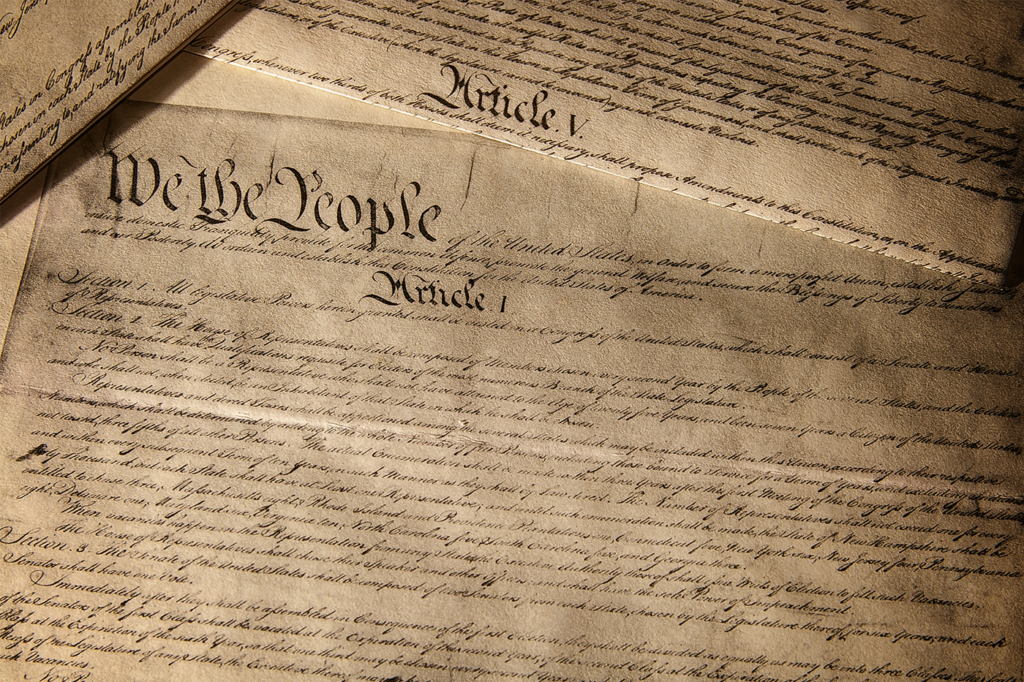In The Political Constitution: The Case Against Judicial Supremacy, Greg Weiner argues that the American people, through their elected representatives, are the chief interpreters of the Constitution. He labels this political vision “republican constitutionalism”—a vision which, in his view, precludes judges from being supreme arbiters of the Constitution. The Political Constitution is not a book about constitutional meaning, but about who is empowered to authoritatively interpret the Constitution. The dominant view today is that courts enjoy this power. Weiner considers this arrangement, which he terms “judicial superintendence,” to betray the decision made, at the outset of the American story, as to the kind of political community the new country would be.
The Political Constitution is not a book about constitutional meaning, but who is empowered to authoritatively interpret the Constitution. The dominant view today is that courts enjoy this power.
In keeping with the book’s title, he argues that America has a “political constitution.” By this phrase Weiner means that the Constitution privileges decision-making by and among citizens—through their elected representatives—with respect to what the common good is and requires. Republican constitutionalism, therefore, conflicts with the notion of individualist constitutionalism championed by scholars such as Randy Barnett. Whereas republicanism grants sovereignty to the people bound together as citizens, individualism grants sovereignty to the people viewed as atomistic islands. To relegate governance to the halls of judicial power, Weiner argues, is to deny republican constitutionalism.
Weiner’s focus on constitutional authority rather than constitutional meaning invites the reader to grapple with the issue of who is responsible for the Constitution. The quick leap to say that judges bear this responsibility, Weiner suggests, allows elected representatives, and those who elect them, to evade their constitutional vocation. This evasion is illegitimate, for it betrays the original vision for America as established by the Constitution—a vision which, Weiner forcefully argues, Americans are obliged to honor and uphold. By examining the Founders’ vision for America as a political community, particularly the vision of James Madison, Weiner advances a sophisticated case against judicial supremacy over the Constitution.
Start your day with Public Discourse
Sign up and get our daily essays sent straight to your inbox.The Political Constitution is a refreshing, thoughtful, and even-handed take on the hotly contested topic of who has the final word on what the Constitution means and requires. For republican constitutionalism to take hold, however, relevant actors must respond. Republican constitutionalism will not emerge if only judges accept Weiner’s case against judicial supremacy and act accordingly. The people and their representatives must do the same. Given the ready willingness of most politicians to let the courts decide hard issues of constitutional significance, a tendency at least partly fueled by the prevalence of judicial supremacy, this change will not happen overnight.
Debates over judicial review and constitutional interpretation only stand to benefit from deeper reflection on the type of political community that the Constitution established. The Political Constitution invites us to take the word republic, and its vision of self-government, seriously. It extends this invitation for good reason, for the meaning of this word can only shed light on the fundamental matter of who is responsible for the Constitution.












